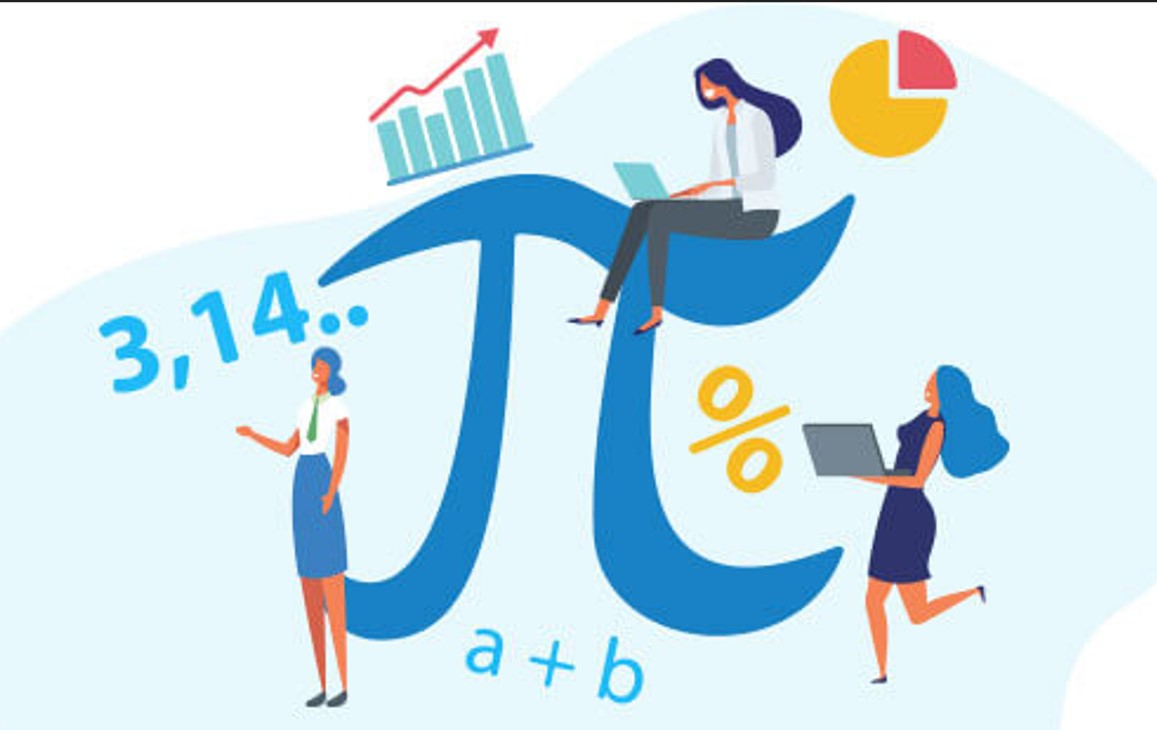History has proven time and again that women are the first and the worst to be affected by conflicts. The war in Ukraine, Israel-Hamas conflict, and ethnic mayhem in Manipur are the most recent examples. Women’s body becomes the site of struggle, power and domination. For many years, women have been erased from public life and young girls barred from university. This sheer discrimination is even reflected in our everyday life, from the subject young girls choose to study and their choice of career. Society’s cultural myths and misconceptions about women reflect gender disparity. Gender usually refers to the psychological, behavioral, social and cultural aspects of being male and female. In pursuit of academic discipline, society has certain prejudices against women. We see a lot of disparity in the discipline of mathematics between males and females. This question connects to the larger consciousness of women in STEM-based studies (Science, Technology, Engineering and Mathematics). For decades, mathematics in particular has been seen as a stereotyped male domain. Generally, females are considered deficient, boys are better than girls in math; gender differences in mathematics learning are at least the result of societal structures, inadequate education opportunities and biased instructional methods. Gendered-stereotyped views such as being a math teacher or professor in schools and colleges, working in the Tech field and laboratory as more suitable for males than females. Societal attitude toward mathematics likely influences student’s perception of their capacities. This conventional belief is reflected in the gendered choice of subject and prestige in the scientific world. Many a time, males are thought to be more suited than females to studying math. Some of these biases remain in the workforce. For instance, a married woman is considered less committed, so is considered a working mother less loyal to the job, and a pregnant female is still passed over for projects and promotion. Women have to pitch much harder than men for equal treatment and opportunities, whether it involves decision-making on their own body, area of study, or choice of profession.
Among all other disciplines, women are largely underrepresented in math. The figure of females enrolled in college for math degrees and PhD courses is staggering low all over the states in India. Mathematics departments in higher education face an acute shortage of math teachers as compared to humanities. Why do we need to promote gender equity in mathematics education? Gender sensitization demands greater introspection. Eliminating ‘sexism’ in pursuit of mathematics education is not just the right thing to do, it goes hand in hand with financial stability. This change is reflected not merely in school and university institutions but in the job market too. Over the last decades, opportunities in the STEM (Science, Technology, Engineering and Mathematics) field have grown dramatically. STEM is being called the future of work due to the development of the digitized economy. Our approach towards mathematics education should be broadened to adapt to the current trend of job markets. Modern technology is advancing at lightning speed and the current trajectory notices the job market being left to play catch up. How do we see women at this juncture? Future jobs will require twice as much science, math, and critical thinking as they do today. Roughly, 90 percent of jobs in Tech fields will require STEM skills. In addition, the marginalization of women in mathematics in the STEM fields is more dreadful. There exists another layer of subset marginalization for women in the field of mathematics. Are women prepared to face the real demand in the coming years? The situation is even worse for women at the periphery and downtrodden.
At the larger discourse, why do we see math subject to be daunting and challenging? This is something that needs to be addressed with our social perception. In the academic paradigm, we require a positive atmosphere and encouragement for young minds in this field of study. Irrespective of gender, there is a hierarchy to the accessibility to math degree to some extent especially those students at the margins and from low-income families. They find it difficult to access the math subject as it requires good grassroots-level pedagogy and extra tuition facilities. Furthermore, there is a perpetual myth in our society that only those people who are usually gifted in mathematics should study the subject. This popular assumption kills hard work spirits among students and compromises the stereotypic view that high-level math skills are not everyone’s cup of tea. Math is the foundation of many other subjects such as science, engineering, economics and computer science. Every aspect of mathematics such as algebra, complex numbers and trigonometry etc. influences our everyday lives. Students should have adequate mathematical skills to crack any competitive exams. Being able to read, understand and respond appropriately to numerical and mathematical information are necessary skills that are needed in the AI-driven economy. We need good numeracy skills in trade and commerce, better numeracy skills enhance our economic outlook.
During recent decades, we have witnessed substantial improvement in the college preparation of female students and the gender gap in education has changed dramatically. In some instances, female high school and graduate students outperformed male students in most subjects. Over the years, girls topping exams in State Board, CBSE and ICSE exams are a testament to the hard work of female students. Few women have already secured the top spots in the country’s toughest Indian Civil Service exams. To take a few names – Ira Singhal (2014), Tina Dabi (2015), Nandini KR (2016), Shruti Sharma (2021). Additionally, more than a hundred women scientists and engineers have actively taken part in India’s space Chandrayaan-3 lunar mission in 2023. These are the telling stories of the changing new India. Yet, gender equality still alludes to educational and employment spaces in India. According to recent World Bank data, women comprise just 14 percent of scientists, engineers, and technologists at research institutions and universities. This is an alarming data. This fact and figure are more worrisome when it comes to institutional leadership. Only a few managerial positions are held by women and fewer women are on panel committees. At the level of directors or head of department, female participation is very low.
In general, the total number of students studying math remains static compared to the total number of graduates and post-grad in humanities and social sciences. Whilst, the lack of specialized math skills among female students is stark. Gender equity in the pursuit of mathematics is barely on the agenda of government higher education policy. Female participation in mathematics study is not a primary concern at home, school and department. The perception that mathematics is a male domain is a misconstrued notion. It is equally important for boys and girls to study mathematics. Both the state and central government should encourage women to pursue mathematics as a priority. This would boost economic development at the regional, national and international levels. Ultimately, it will help to reduce the gender pay gap in the job market. European Union has signed a declaration to ensure that “women play a prominent role in technology”. This civilization is in transition to a virtual world i.e. Metaverse globally with technology at the forefront. Big Tech companies like Apple, Meta, and Microsoft need much greater women participation as compared to men. To catch up with the current digital needs in skills and knowledge, higher education departments should emphasize core mathematics modules in degrees disciplines that rely heavily on it – such as engineering, economics, chemistry, physics and computer science and have them taught by specialist mathematicians. This would keep the mathematics department open, while also ensuring that general mathematical literacy improves in the country. The relevance of mathematics and its vast range of applications would be abundantly clear, better and equipping every student with the necessary mathematical skills the workforce needs.
We need better policies intended to foster women’s access to mathematics higher education and to abolish discrimination based on gender. Female participation should aim to achieve equity of outcomes rather than just equal access to educational opportunities in mathematics. More efforts are also needed to increase the participation of women as faculty and as decision-makers in the field. According to the World Bank, empowering women is smart economics. If women are empowered, economies advance. Eliminating gender disparity in the field of mathematics and STEM fields in general can turbocharge the economy. In the coming forth industrial revolution with tech-driven AI and a digitized economy, optimum participation of women in STEM fields is the way forward for inclusive, equity, and smart economic development.

The writer is an Assistant Professor, Department of Mathematics, St Joseph College, Ukhrul, Manipur










